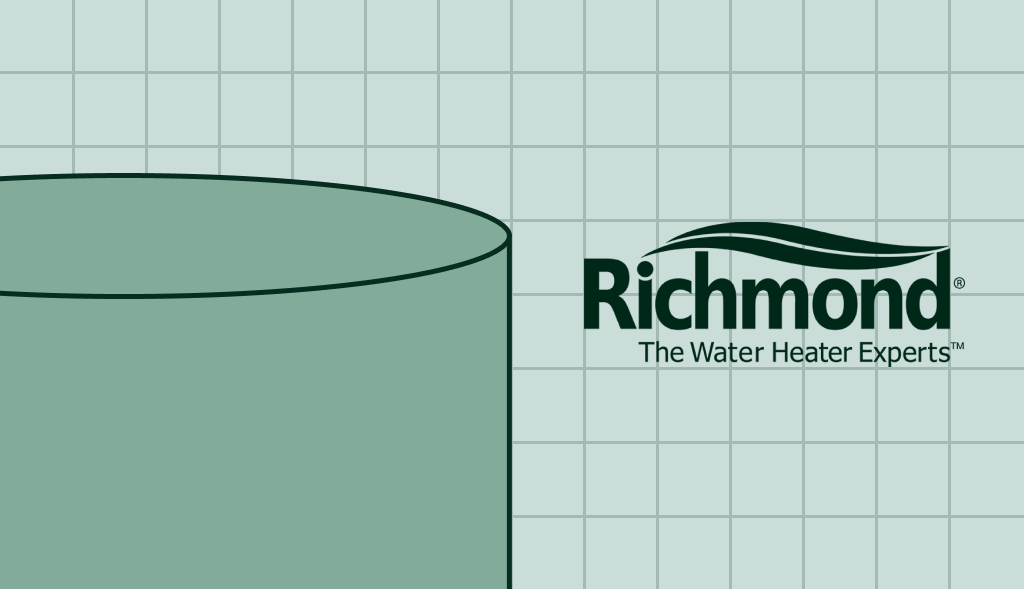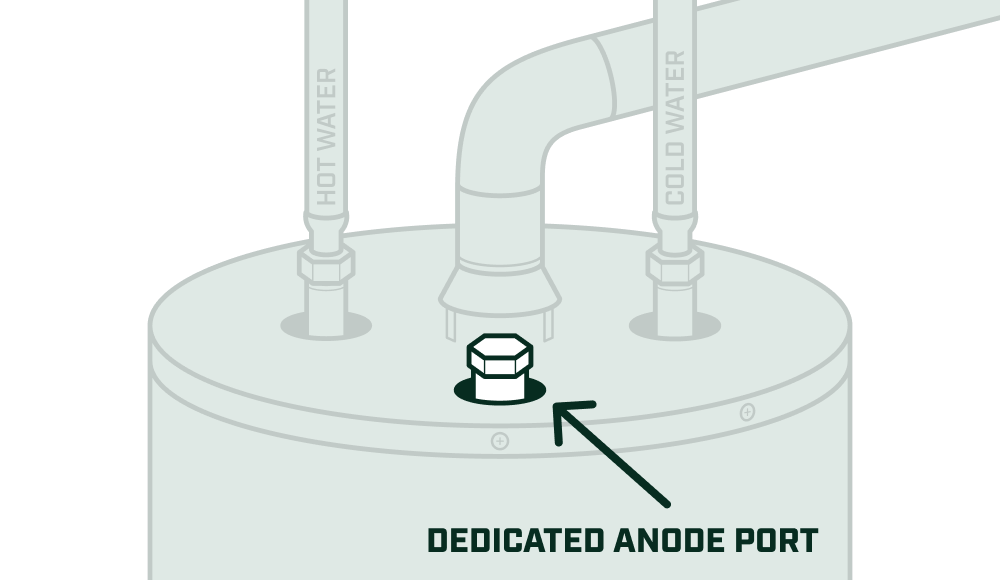Are you tired of dealing with a water heater that just won’t work right? If your Richmond home is facing water heater problems, you’re not alone—and the frustration can quickly add up.
From cold showers to unexpected leaks, these issues disrupt your daily routine and can even lead to costly repairs. But don’t worry, this article will help you understand the common signs of trouble and what you can do to fix them before they get worse.
Keep reading to take control of your water heater and bring comfort back to your home.

Credit: www.corroprotec.com
Common Water Heater Issues
Water heaters in Richmond often face common problems that affect their performance. These issues can cause discomfort and higher energy bills. Understanding these problems helps in spotting them early and fixing them fast. Below are some typical water heater troubles you might find.
No Hot Water
No hot water is the most obvious problem. It can happen due to a broken thermostat or heating element. Sometimes, a tripped circuit breaker stops the heater from working. Checking these parts can solve the issue quickly.
Water Too Hot
Water that is too hot can cause burns and waste energy. A faulty thermostat often causes this problem. The thermostat may be set too high or might be broken. Lowering the temperature or replacing the thermostat can fix it.
Strange Noises
Strange noises like popping or banging are common signs of trouble. These sounds usually come from sediment build-up inside the tank. Sediment hardens and causes the heater to work harder. Flushing the tank helps clear out sediment and stops the noise.
Leaks And Drips
Leaks and drips around the water heater can cause water damage. They often come from loose pipes or a damaged tank. Small leaks should be fixed immediately to avoid bigger problems. Checking connections and replacing faulty parts can stop leaks.
Slow Heating
Slow heating means the water takes a long time to get hot. This usually happens because of sediment build-up or a weak heating element. Cleaning the tank or replacing the element helps speed up heating. Regular maintenance keeps the water heater efficient.

Credit: www.youtube.com
Diy Troubleshooting Tips
Many common water heater issues in Richmond can be fixed by homeowners. Basic troubleshooting saves time and money. Follow simple steps to find and fix problems safely. These tips help keep your water heater working well.
Checking The Thermostat
Start by examining the thermostat settings. Make sure the temperature is set between 120 and 140 degrees Fahrenheit. Too low or too high settings cause water temperature problems. Adjust the thermostat and wait 30 minutes to see changes. Replace the thermostat if it does not respond.
Flushing The Tank
Drain the water heater tank to remove sediment buildup. Sediment reduces heating efficiency and causes noises. Turn off the heater and attach a hose to the drain valve. Let the water flow out until clear. Flush the tank every 6 to 12 months for best results.
Inspecting The Pilot Light
Check if the pilot light is on for gas water heaters. A pilot light that is off stops the heater from working. Follow safety rules before relighting it. Use a match or lighter near the pilot opening. If the light won’t stay on, call a professional.
Resetting The Heater
Resetting can fix electronic or safety switch problems. Locate the reset button on the heater panel. Press and hold it for 30 seconds. Release and wait for the heater to start. If the heater trips again, avoid repeated resets and seek help.
Tightening Loose Connections
Loose electrical or water connections cause leaks and faults. Turn off power and water supply first. Use a wrench to tighten fittings and screws carefully. Check for damaged wires or pipes. Tight connections improve safety and heater performance.
Quick Fixes For Leaks
Leaks in a water heater cause water waste and damage. Quick fixes can stop leaks fast. These solutions save time and money. They also prevent bigger problems. Here are simple ways to fix common leaks in Richmond water heaters.
Replacing The Pressure Valve
The pressure relief valve controls water pressure inside the heater. A faulty valve leaks water. Turn off the water supply first. Then, unscrew the old valve carefully. Replace it with a new valve that fits well. Tighten it firmly but avoid overtightening. Turn the water back on and check for leaks.
Fixing Pipe Joints
Leaking often happens at pipe joints. Pipes can loosen or corrode. Shut off the water before fixing. Use a wrench to tighten the loose joints. If corrosion exists, replace the damaged pipe section. Wrap pipe threads with plumber’s tape for a better seal. Test for leaks by turning water on slowly.
Sealing Small Drips
Small drips can be sealed quickly. Clean the area around the drip first. Use waterproof sealant or plumber’s epoxy. Apply it evenly to cover the leak. Let it dry as per product instructions. Check after drying to ensure the drip stops. This fix works well for minor leaks on tanks or pipes.
When To Call A Professional
Knowing when to call a professional for your Richmond water heater is important. Some problems need expert help to avoid bigger damage. Quick action can save money and keep your home safe.
Persistent Problems
Small fixes may work for a while. But if the problem returns often, it needs a pro. Constant leaks, strange noises, or no hot water signal serious issues. A technician can find the root cause and fix it properly.
Gas Water Heater Concerns
Gas water heaters can be dangerous without the right care. Smelling gas or seeing a yellow flame means call an expert right away. Gas leaks or faulty parts risk fire or poisoning. Professionals handle gas safely and follow the rules.
Electrical Issues
Water heaters with electric parts need careful checks. Flickering lights, tripped breakers, or no power are warning signs. Electrical problems can cause shocks or fires. Only trained technicians should fix these to keep you safe.
Regular Maintenance
Regular checks by a professional keep your heater working well. They clean parts, check safety, and catch problems early. Scheduled maintenance helps avoid sudden breakdowns and extends the heater’s life.
Preventive Care Tips
Preventive care is key to avoiding common Richmond water heater problems. Simple steps help keep your heater running well. Regular maintenance extends its life and saves money.
Regular Flushing Schedule
Flushing the water heater removes sediment buildup. Sediment causes rust and blocks heat. Flush the tank every six months. Use cold water to flush out debris. This keeps water clean and heater efficient.
Temperature Settings
Set the heater temperature to 120°F. Higher temperatures waste energy and cause damage. Lower settings reduce the risk of burns. Proper temperature saves electricity and protects the heater.
Checking Anode Rod
The anode rod stops rust inside the tank. Check it every year for wear. Replace the rod if it is corroded. This simple step prevents leaks and extends tank life.
Insulating The Heater
Insulate the water heater and pipes. Insulation keeps heat inside the tank. It lowers energy bills and reduces heat loss. Use a special blanket made for water heaters. Cover pipes with foam sleeves for best results.

Credit: www.corroprotec.com
Frequently Asked Questions
What Are Common Richmond Water Heater Problems?
Richmond water heaters often face leaks, no hot water, strange noises, and pilot light issues.
How Can I Tell If My Water Heater Is Leaking?
Look for water pooling near the heater, rust on the tank, or dampness around pipes.
Why Is My Richmond Water Heater Making Loud Noises?
Loud sounds usually mean sediment buildup inside the tank, causing popping or rumbling noises.
What Causes No Hot Water From A Richmond Heater?
Faulty thermostat, broken heating element, or pilot light problems can stop hot water flow.
How Often Should I Service My Richmond Water Heater?
Annual maintenance helps prevent problems and keeps your water heater running efficiently.
Conclusion
Water heater problems in Richmond can cause big headaches. Small issues can turn into costly repairs fast. Regular checks help catch problems early. Clean your heater and check for leaks often. Know when to call a professional for help. Staying aware saves money and keeps hot water flowing.
Don’t wait until cold showers surprise you. Take simple steps today for a warm, comfortable home tomorrow.
